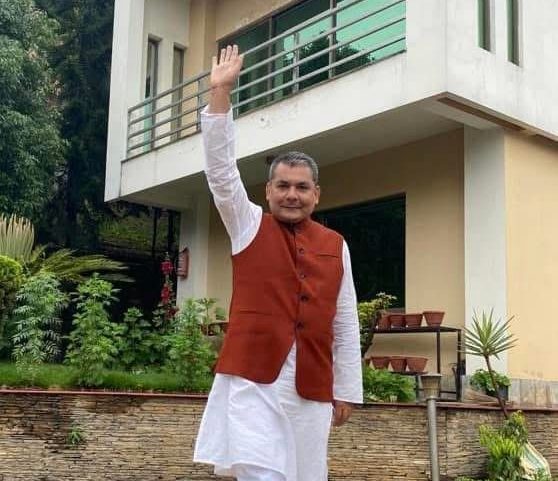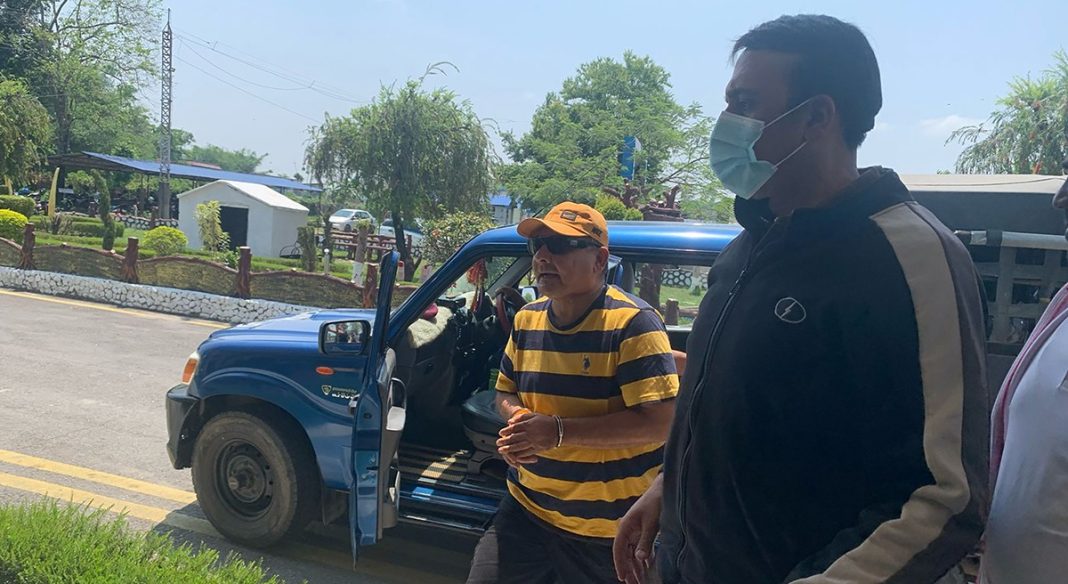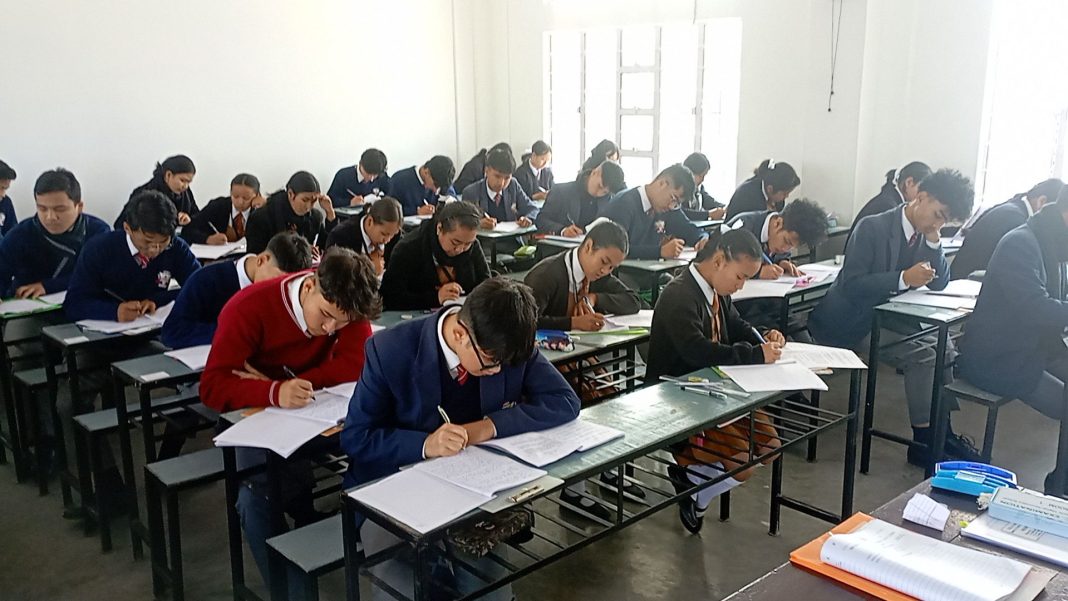Guwahati, April 12: Durga Prasai, Nepal’s most polarizing royalist agitator and a former Communist Party ally, was arrested in Assam’s Baksa district, ending a two-week manhunt and reigniting debate over Nepal’s growing monarchist undercurrent.
Tracked to Tamulpur—deep in northeastern India’s BJP-dominated belt—Prasai was extradited to Nepal, where he now faces charges tied to violent unrest in Kathmandu.
He was flown to Kathmandu via Buddha Air after being handed over at the Kakarbhitta border by Indian authorities. Upon arrival, he was taken to the District Police Office and is set to appear in court for a custody extension.
Prasai had been on the run since March 28, the day a royalist protest turned violent in Kathmandu’s Tinkune area. Demonstrators clashed with police after breaching barricades.
Prasai drove a vehicle through a restricted zone, escalating the standoff. Police responded with tear gas, water cannons, and live rounds. Two people were killed, and at least 20 were injured.
In the days that followed, Prasai released videos claiming he was still in Nepal. His arrest has since confirmed speculation that he had fled across the border, likely with assistance.
The March 28 rally was organized by the Joint People’s Movement Committee for the Restoration of Monarchy. Prasai, calling himself the “People’s Commander,” used the event to deliver incendiary speeches attacking Nepal’s secular republic and calling for the return of a Hindu monarchy. Authorities now accuse him of inciting violence.
But Prasai’s story runs deeper than one protest. It reflects a dramatic ideological pivot in Nepal’s political landscape. Just a decade ago, he was a little-known businessman from Jhapa, best known for running B&C Hospital.
A former Maoist sympathizer turned ally of the Communist Party of Nepal (UML), Prasai once held a central committee post under party leader KP Sharma Oli. His political trajectory changed in 2018, after a now-notorious photo showed him dining with Oli and Maoist leader Pushpa Kamal Dahal (Prachanda).
To critics, it symbolized the backroom dealings of a disconnected political elite. Around this time, activist Dr. Govinda K.C. publicly denounced Prasai as part of Nepal’s “medical mafia” over alleged profiteering in the private health sector.
When his B&C Medical College failed to secure affiliation, Prasai’s frustration with the establishment grew. After being denied an election ticket in 2022, he broke with Oli and turned sharply monarchist.
By 2023, he had reinvented himself as a grassroots royalist agitator. His fiery YouTube speeches railed against federalism, secularism, and corruption—messaging that resonated with disillusioned youth and rural conservatives alike.
While older royalist figures like Rajendra Lingden and Kamal Thapa have struggled to build momentum, Prasai’s confrontational style and populist appeal have filled the vacuum. His “Nation, Nationality, Religion-Culture, and Citizen Rescue” campaign has blended nationalism with anti-establishment anger, making him both a symbol and a scapegoat.
On March 27, just a day before the protest, the aging monarchist bloc appointed
Prasai its “Public Commander,” signaling a strategic pivot to populism over protocol.
His sudden flight to Assam, a BJP stronghold, has raised eyebrows. While no formal ties to India’s right-wing groups have been confirmed, the optics suggest ideological overlaps between Hindu nationalists across the border.
Back in Nepal, his arrest has triggered mixed reactions. Mainstream parties welcomed the move as a step toward restoring order. But royalist factions have decried it as political persecution, even hinting at mass protests. Still, the royalist camp remains fragmented, hampered by infighting and lack of organization.
Whether Prasai’s detention marks the end of his political ascent—or transforms him into a martyr—is unclear. But his rise has already reshaped the national discourse.
From a Communist backer to the face of Nepal’s royalist revival, Durga Prasai’s arc is a study in ideological volatility—and in a country gripped by political fatigue, his name still commands attention, even in custody.




